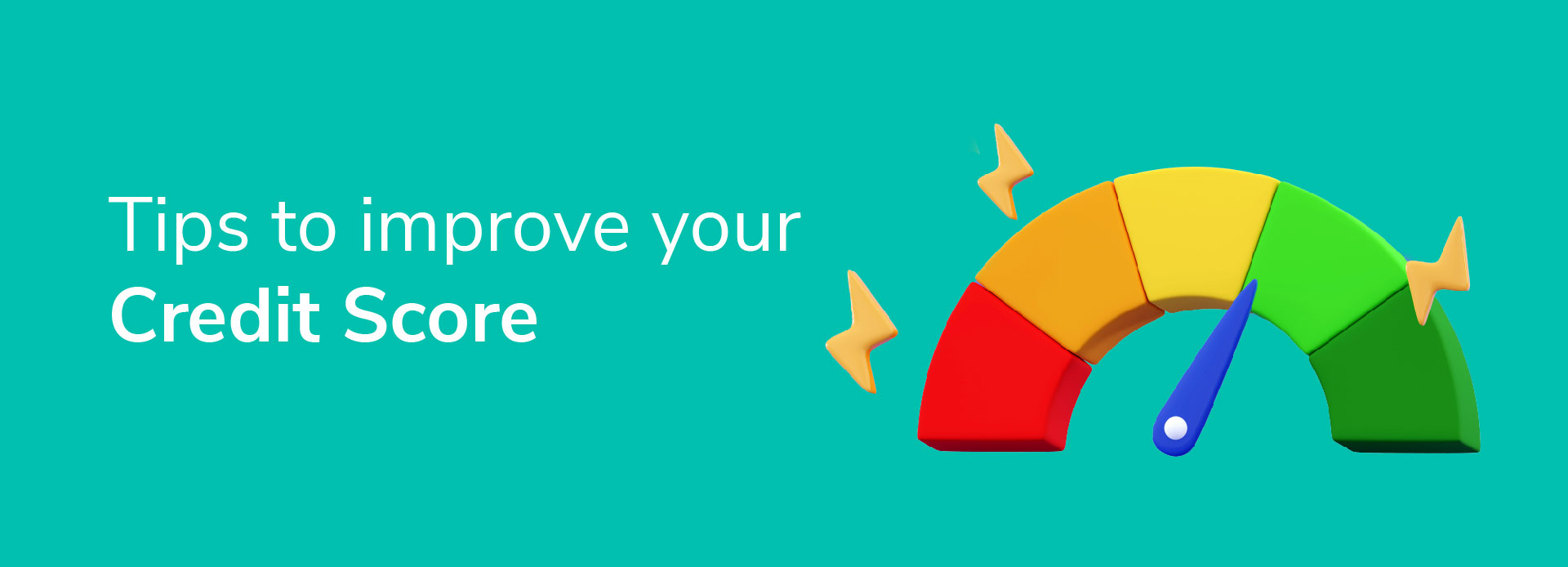
How Can You Improve Your Credit Score?
11 March 2024 | By INDIE
When you apply for a loan, your credit score is one of the first things to look for. Most of us simply want to chase a 'good' credit score. But what is a good credit score, and how do you get it?
In India, most credit ratings are done on a scale of 300 - 900. A score of 750 and above is considered to be good. However, it is important to note that the definition of a 'good' credit score might differ from one lender to another. It highly depends on the lender, the type of loan, and the specific credit scoring model they use.
So, to get clarity on what type of score you have, you can get a standardized score from any of the RBI-approved credit rating agencies in India. These include CIBIL, CRIF Highmark, Equifax, Experian, etc. They give you a score based on your credit history. Lenders often use this information to calculate their internal scores, which helps them in deciding whether or not to lend to you.
Recommended Read: 3 Reasons You Should Opt For INDIE's Line of Credit
If you are opting for a loan, it is important to know how to improve your credit score. Let’s see how you can do that.
Tips to Improve Your Credit Score (High Impact)
1. Set reminders or Standing Instructions (SI) to pay off your EMIs, loans and other credits on time
Use your phone to set reminders for the due dates of your loan payments.
Alternatively, you could talk to your bank about setting up automatic deductions from your account to pay your loan EMIs. With Standing Instructions, a fixed amount is automatically debited from your bank account at regular intervals (usually monthly), to cover your loan payments.
2. Look for errors in your credit report
Your credit report is like a report card of your credit history. It informs lenders how responsible you are with money. Sometimes, there can be mistakes like wrong personal details or errors in account information. So, it is advised to regularly check this report to make sure everything is correctly represented.
3. Don't apply for multiple loans or credit instruments simultaneously
Applying for loans or credit cards would make lenders check your credit history. This check is called a "hard inquiry."
Too many of these inquiries in a short time might make lenders think you're having money problems. So, it's better to research and choose one option instead of applying to many. This research and choice help protect your credit score from going down.
4. Get a secured credit card
If you've had trouble paying back loans before, you can try a secured credit card. Your credit score wouldn't matter as much if you have this type of card. So, it is a great option to improve your history if you use it diligently and pay all your dues on time.
5. Keep your old credit accounts operational and open
It's good to keep old credit card accounts open, even if you are not using them. This helps portray a longer and older credit history, which lenders typically prefer.
Additional Tips to Improve Your Credit Score
Having a mix of different types of credit, like credit cards and loans, can prove to be positive for your credit score. It shows you can handle different kinds of financial responsibilities.
Don't max out your credit cards. Try to use an amount that is around 60% of your available credit. Low credit utilization is viewed positively by lenders.
Apart from loans and credit cards, ensure timely payment of other bills, like utility bills and rent. While these may not directly impact your credit score, consistently missing payments can reflect negatively on your credit report.
If someone you trust has a good credit history, consider becoming an authorized user of their credit card. This authorization can help you build a credit history or rebuild a score.
Having savings or an emergency fund can act as a financial buffer. It will help you to avoid falling behind on payments during unexpected expenses. So, overall, it will help you in reducing the likelihood of negative impacts on your credit.
Summing Up
When you are trying to find ways on how to improve credit score, each step you take, no matter how small, matters. Building a healthy credit history is not an overnight task but a series of mindful choices.
If you are ready to experience financial flexibility and are looking for quick access to funds via credit line, consider INDIE Credit Line. It is a hassle-free borrowing approach that will get you the credit you need instantly. Most importantly, you can decide on a payment schedule that suits you.




